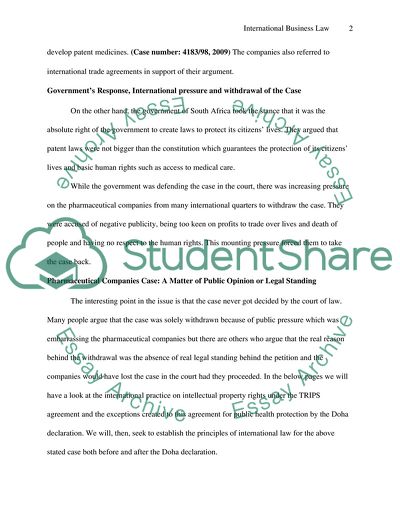Cite this document
(“Pharmaceutical Company Law Suit against the Government of South Africa Case Study”, n.d.)
Pharmaceutical Company Law Suit against the Government of South Africa Case Study. Retrieved from https://studentshare.org/law/1731153-international-business-law
Pharmaceutical Company Law Suit against the Government of South Africa Case Study. Retrieved from https://studentshare.org/law/1731153-international-business-law
(Pharmaceutical Company Law Suit Against the Government of South Africa Case Study)
Pharmaceutical Company Law Suit Against the Government of South Africa Case Study. https://studentshare.org/law/1731153-international-business-law.
Pharmaceutical Company Law Suit Against the Government of South Africa Case Study. https://studentshare.org/law/1731153-international-business-law.
“Pharmaceutical Company Law Suit Against the Government of South Africa Case Study”, n.d. https://studentshare.org/law/1731153-international-business-law.


